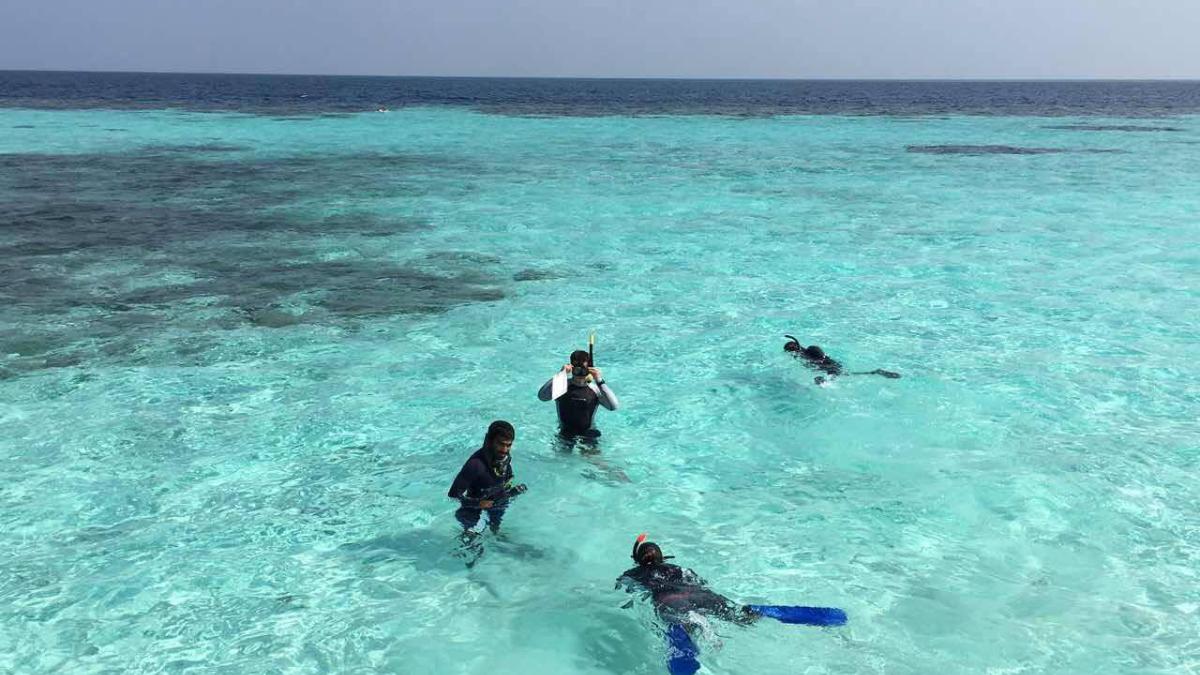USAID helps secure biosphere reserve designation to better conserve natural resources
Climate change is an ever-present threat to Maldives. As global sea levels rise, part of this country of 1,200 islands on atolls in the Indian Ocean could become uninhabitable by the mid-21st century as floods that damage infrastructure and contaminate freshwater become more frequent.
Maldivians are adapting to and mitigating these climate stresses through local, national, and global interventions, including working with the United Nations Educational, Scientific and Cultural Organization (UNESCO) to designate certain areas as biosphere reserves. This internationally recognized designation sets up a “learning place for sustainable development,” a site for testing approaches on how to sustainably manage natural systems that conserve biodiversity and manage and mitigate climate change impacts on local economies.
In 2011, UNESCO designated Baa Atoll, in central-western Maldives, as a biosphere reserve. Comprising 75 islands inhabited by 12,000 people dependent on tourism and fisheries, it supports one of the largest groups of coral reefs in the Indian Ocean, which act as a conduit for the transport of plankton necessary for biodiversity to thrive and to reduce the effect of waves and storm surges. Since this designation, Baa Atoll’s sustainable ecotourism tourism industry has bloomed, hosting more than 350,000 tourists annually pre-COVID.



